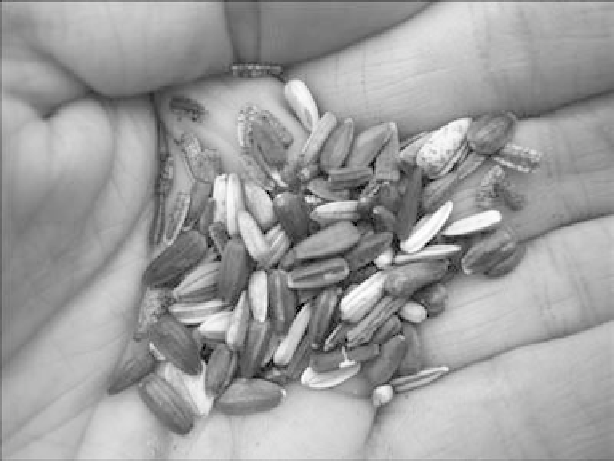Agriculture Reference
In-Depth Information
Only seeds from open-pollinated varieties will produce the same plant as the one from which the seeds
were harvested.
(Photo courtesy of Broadfork Farm)
Sustainability and Self-Sufficiency
Sustainability is an important aspect of the backyard farm. You want to be able to keep things
going year to year without having to put more into the farm than you are getting out. After you've
made that initial investment, you want to be able to have a yearly return with minimal reinvest-
ments. This is true of your chickens, bees, goats, and most certainly true of your plants as well.
Of course, some of it is the control factor. After all, seeds are food. And at the end of the day,
if you have food, you have the ability to live. With so many of our foods now being regularly
imported, or grown from seed that produces sterile offspring (in other words, the plants grow one
year and no more), the food situation in America is more tenuous than most people realize. So
taking a little bit of control back for yourself is not only a cost-saving measure, but also a little step
toward independence.
Hybrids are often more readily available in seed catalogs for a number of reasons. Seed companies
can keep the parentage of hybrid varieties a secret, making them easier to sell at a higher price.
And because hybrids will not breed true from seed, a seed company knows that gardeners will have
to come back and buy hybrid seeds from them again next year. And the next year. By making the
switch to open-pollinated varieties you can break that dependence.













